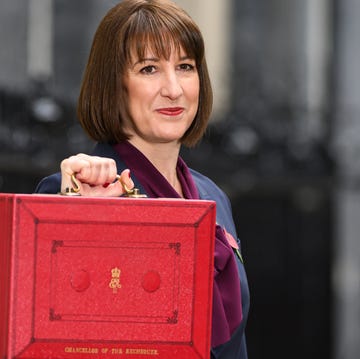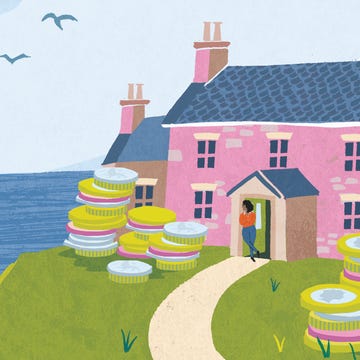In 12 years, the UK has lost 40% of its bank branches, ending face-to-face banking services for many. Now the UK’s first ‘super ATMs’ are here. These allow customers of Bank of Scotland, Barclays, Halifax, Lloyds Bank, NatWest, Royal Bank of Scotland and Ulster Bank to deposit cash into accounts held with any of them.
Super ATMs differ from regular cashpoints, which only allow deposits into accounts held with the bank operating the machine. Anyone with an account at a major UK bank can now withdraw cash at a super ATM, check their balance and change their PIN. The first three super ATMs are in Atherstone, Warwickshire; Heathfield, East Sussex; and Swanage, Dorset, with 16 to follow in the first rollout and 100 by the end of the year.
Good news for the future of cash
As well as giving bank customers direct access to essential services, super ATMs could also help ensure small businesses up and down the country can accept cash payments from customers who rely on physical money to make purchases. ‘Cash remains an important part of the payment mix for many consumer-facing small businesses and their customers,’ says Martin McTague, national chair of the Federation of Small Businesses. ‘The decline of the bank branch network has left many without vital services; in particular, the ability for small business owners to deposit takings for the day safely without shutting early or travelling for miles. The opportunity to deposit in a super ATM that works for multiple banks is an important innovation and could make a real difference.’
‘Although many people are happy and comfortable paying with their card or phone, there are still millions who rely on or simply prefer to use cash,’ says Cat Farrow, customer director at Cash Access UK – which is responsible for the new super ATMs and banking hubs.
'We’re still in the early stages, but we plan to introduce many more deposit machines and other new cash services over the next few months and years.’ The super ATMs could go some way to helping those left financially excluded by branch closures and who may have had to choose between switching accounts to a bank with nearby branches or travelling to the next nearest branch.
Big demand still for face-to-face banking
Older people, in particular, have been heavily impacted by the loss of their local bank branch. Research by Age UK found that four in 10 older people don’t manage their money online and could be at risk of financial exclusion if they can't access over-the-counter banking services. It also found that three-quarters of over-65s who do bank online wanted to be able to access bank branches, too.
‘We need to face up to the fact that a huge number of people are not banking online,’ says Caroline Abrahams, charity director at Age UK. ‘These findings demonstrate the huge and continuing demand for face-to-face banking services, and it’s crucial that the banks respond. Otherwise, they’re effectively disenfranchising millions who are willing and able to manage their finances – just not online.’
New banking hubs open
To help maintain access to banking services in the face of branch closures, more than 50 banking hubs are now open, too. These are shared spaces where you can go if you hold an account with a number of different banks, including Bank of Scotland, Santander, TSB and Virgin Money, to deposit cash and cheques, withdraw money and pay bills.
If you need to deal with something more complex – a loan application, for example – you’ll find an adviser from your bank there once a week so you can meet face-to-face. There are 76 further hubs currently in development, with sites including Seaford in East Sussex, Pocklington in East Yorkshire and Penarth in the Vale of Glamorgan set to benefit.
How else can I access banking services?
Other initiatives are also springing up across the country, as numerous groups and businesses look to fill the void left by disappearing bank branches. The PayPoint network now offers ‘cashback without purchase’ at 4,800 small shops. This allows you to withdraw cash and check your bank balance fee-free and without having to buy anything – although the small stores obviously hope you will spend some money while you’re there.
Meanwhile, the Post Office has an agreement with 30 banks and building societies that allows its customers to go to a local Post Office branch to make cash deposits, withdrawals and balance enquiries. There are also now automated deposit machines appearing at Post Offices to help local businesses bank their cash quickly and easily. This all means the company’s 11,500 branches are now handling more than £3bn cash transactions a month.














